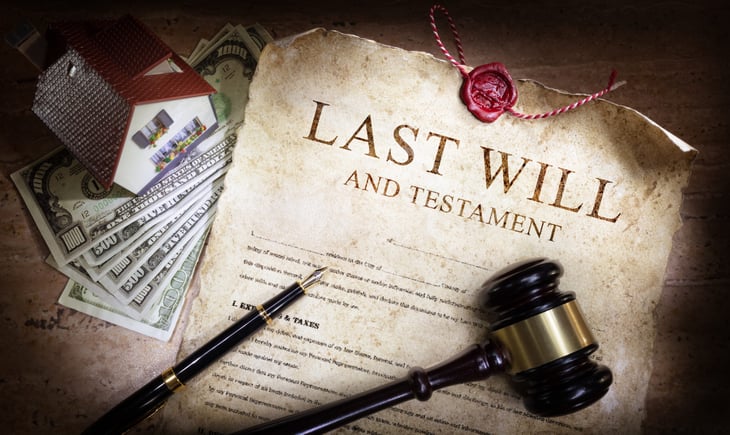
Anyone nearing retirement needs to start thinking about having the right estate planning documents. Unfortunately, relatively few of us take that step.
Recently, insurer MassMutual surveyed 1,500 Americans nearing retirement — defined as being between the ages of 55 and 65 — and asked them whether they had four key estate planning documents in place.
In the case of all four documents, well under 50% said they had completed the paperwork. Here is a breakdown of the sad reality, and why these documents are necessary.
Will

Survey respondents who have this estate planning document in place: 35%
You have worked a long lifetime to build a nest egg and accumulate other types of wealth: Does it really mean so little that you do not care what happens to your legacy after you die?
A will can help determine:
- What happens to your valuables after you die
- Who will serve as your executor
- The funeral plans you would like to see carried out
Don’t assume you have to hire an expensive attorney to draw up a will. Online services such as Trust & Will offer an affordable and accessible way to create estate planning documents.
For more on how to craft a good will, check out “7 Things You Should Not Include in Your Will.”
Medical advance directive

Survey respondents who have this estate planning document in place: 33%
Often known as a “living will,” a medical advance directive instructs health care providers about what types of treatments you would — and would not — consent to in emergency situations where you cannot speak for yourself.
This can become important if you are in a coma or become too ill to communicate. In particular, having this document in place will likely help determine whether you are kept on a breathing machine or feeding tube when the chance of medical recovery is slim.
Health care durable power of attorney

Survey respondents who have this estate planning document in place: 29%
A health care durable power of attorney is a document that names an individual to make medical decisions on your behalf if you cannot communicate such instructions yourself.
Some people use this document instead of completing a living will while others do both.
Financial durable power of attorney

Survey respondents who have this estate planning document in place: 25%
A financial durable power of attorney names an individual to make money decisions on your behalf if you become incapacitated and cannot do so yourself.
Without this document, court proceedings would likely be necessary to establish who has authority over your financial affairs.
For more about sound estate planning, read “8 Documents That Are Essential to Planning Your Estate.”





Add a Comment
Our Policy: We welcome relevant and respectful comments in order to foster healthy and informative discussions. All other comments may be removed. Comments with links are automatically held for moderation.